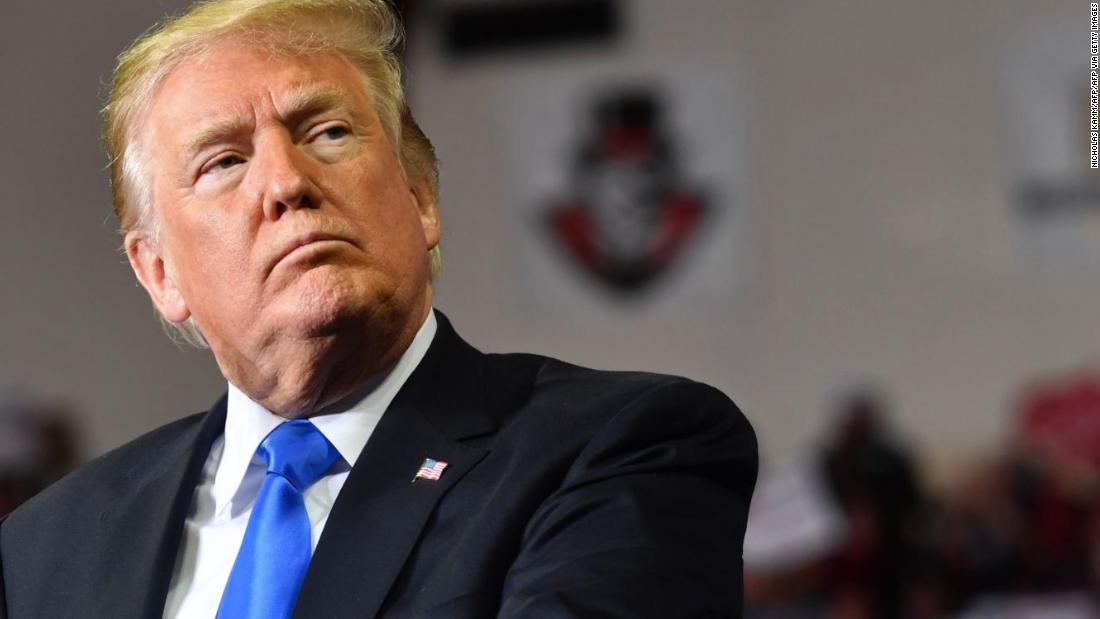
The emails from Justice Department and White House officials show how Trump allies pressured Rosen to consider false and outlandish allegations that the election had been stolen and sought to get the Justice Department to formally back up the false claims. The documents also offer a window into how Rosen dealt with the political pressure from the White House soon after he was tapped to lead the department in the final weeks of the Trump administration.
Amid the pressure, Rosen said he refused to speak to Trump’s personal lawyer Rudy Giuliani about his false claims that the 2020 election was stolen.
When Mark Meadows, then-White House chief of staff, sought to have Rosen arrange an FBI meeting with a Giuliani ally pushing a conspiracy theory that Italy was using military technology and satellites to somehow change votes to Joe Biden, Rosen said he would not help Giuliani.
“I flatly refused, said I would not be giving any special treatment to Giuliani or any of his ‘witnesses,’ and re-affirmed yet again that I will not talk to Giuliani about any of this,” Rosen wrote to then-acting Deputy Attorney General Richard Donoghue.
The new emails provide additional detail to reports earlier this month from CNN, The New York Times and others on Meadows’ emails to Rosen after the election, which revealed how the top White House aide had urged the Justice Department to take action for Trump’s benefit. The emails included a list of complaints about voting procedures in New Mexico, alleged “anomalies” in a Georgia county and the claims about Italian satellites.
The emails also show how Trump directed allies toward Rosen, who had been named acting attorney general following William Barr’s December 2020 resignation after Barr had publicly said there had not been widespread fraud in the election.
Kurt Olsen, a private attorney, reached out to John Moran at the Justice Department on December 29 requesting a meeting with Rosen, promising he could meet at the Justice Department with an hour’s notice. He attached a draft complaint modeled after the Texas Supreme Court lawsuit unsuccessfully challenging the election results in four states, and wrote in a follow-up email that Trump directed him to meet with Rosen to discuss the US bringing a similar action.
“The President of the United States has seen this complaint, and he directed me last night to brief AG Rosen in person today to discuss bringing this action,” Olsen wrote. “I have been instructed to report back to the President this afternoon after the meeting.”
The same day, Trump’s White House assistant also forwarded the draft complaint to Rosen and Donoghue to review, saying it had also been shared with Meadows and White House counsel Pat Cipollone.
On December 14, Trump’s assistant had sent Rosen and Donoghue a document claiming to show voter fraud in Antrim County, Michigan. An aide to Donoghue forwarded the document to the US attorneys for the eastern and western districts in Michigan.
By the end of the year, it was clear Rosen and Donoghue had tired of the pressure campaign from the White House.
The emails show how Meadows pushed the Justice Department to investigate the fraud claims being made by Trump allies like Cleta Mitchell, the lawyer who assisted Trump on his January 2 call when he pressured Georgia officials to “find” him votes.
In an email on January 1, Meadows says there were “allegations of signature match anomalies” in Fulton County, Georgia, asking Rosen to have a Justice Department official “engage on this issue immediately to determine if there is any truth to this allegation.”
Rosen forwarded the email to Donoghue later that day, saying: “Can you believe this? I am not going to respond to the message below.”
“At least it’s better than the last one, but that doesn’t say much,” Donoghue responded.
When Meadows sent Rosen a YouTube video link about Italian satellites, Rosen forwarded it to Donoghue, who responded, “Pure insanity.”
In another exchange, Donoghue told Steve Engel of the Justice Department Office of Legal Counsel that he wanted to meet with him “about some antics that could potentially end up on your radar,” signaling there was at least some concern that the Office of Legal Counsel would have to weigh in on potential issues.
The new emails released by the committee include correspondence with Jeffrey Clark, a Justice Department lawyer who tried to convince Trump to remove Rosen and use the department to undo Georgia’s election results, The New York Times reported in January.
In what appears to be the aftermath of a January 3 meeting of Trump, Clark, Rosen and others, then-Justice Department official Patrick Hovakimian wrote, “It sounds like Rosen and the cause of justice won.”
“Amazing,” responded John Demers, the head of the National Security Division, who is leaving the Justice Department at the end of the month.



